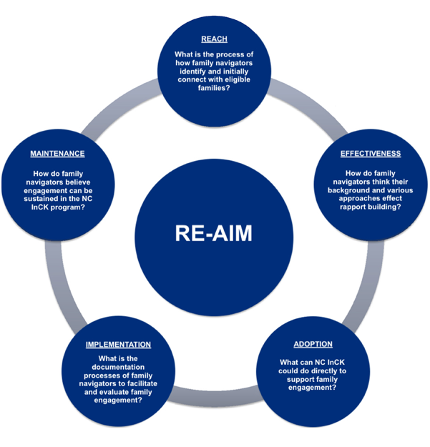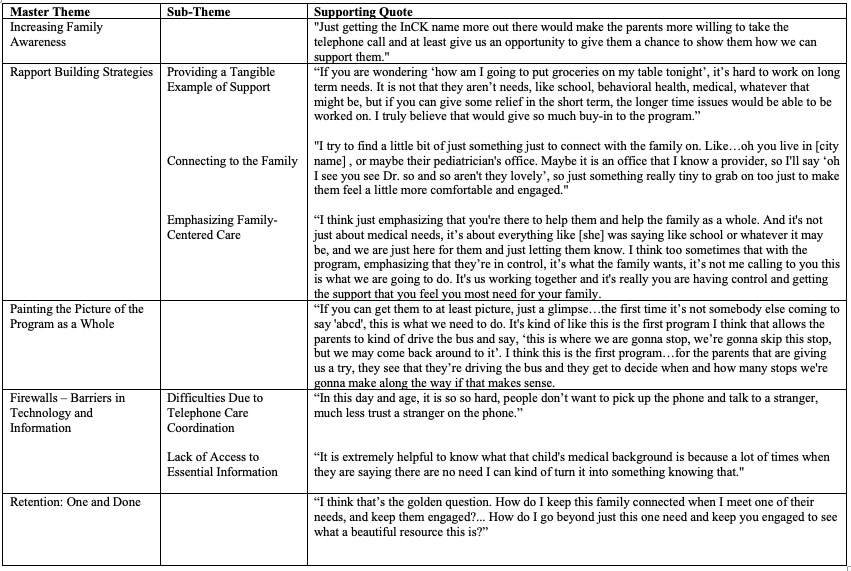Health Services Research
HSR 1: States, Medicaid, and the Structure of Health Care
575 - Improving Family Engagement Strategies in the North Carolina Integrated Care for Kids Model
Publication Number: 575.222
- RC
Rushina Cholera, MD PhD (she/her/hers)
Assistant Professor of Pediatrics and Population Health Sciences
Duke University School of Medicine and Duke Margolis Center for Health Policy
Durham, North Carolina, United States - AW
Alexandra Wynn, M.S. (she/her/hers)
Health Psychology Graduate Student
Virginia Commonwealth University
Richmond, Virginia, United States
Presenting Author(s)
First Author(s)
Background: North Carolina InCK (NC InCK) is 1 of 7 InCK sites that launched in January 2022 to pilot a child-centered service delivery and state payment model to improve care integration for children receiving Medicaid. A critical component of NC InCK is care coordination that engages families and care managers (CMs) to holistically address the needs of children, beyond health care. Initial implementation of NC InCK resulted in limited connections between CMs and families.
Objective: To understand barriers and facilitators to effective family engagement from the perspective of CMs within NC InCK.
Design/Methods: Six months into NC InCK implementation (July 2022), we conducted 3 virtual focus groups with 11 CMs, recruited via email, on their perspectives on how to improve family engagement. An interview guide was structured using the RE-AIM (Reach, Effectiveness, Adoption, Implementation, and Maintenance) implementation science framework (Figure 1). Questions focused on outreach process, rapport building, and strategies to improve engagement. Rapid qualitative analysis was conducted to identify key themes.
Results:
CMs represented existing staff members from 4 health plans/medical home systems that implement NC InCK and most of their backgrounds were in nursing. Overall themes (Table 1) included 3 strategies: 1) Increasing family awareness of NC InCK before outreach to improve receptivity (e.g., mailing information to homes, communicating through trusted medical providers); 2) Building rapport (e.g., providing tangible examples of supports by providing a resource for the most prominent need); and 3) Painting a picture of the program as a whole (e.g., explaining cross-sector model components to address specific needs). CMs described challenges with reaching families by phone due to not having updated contact information, and lack of access to essential family medical and social information to tailor outreach. Retention was noted as a key challenge to program sustainment as CMs note it has been difficult to keep families connected after one need is addressed due to being busy, overwhelmed, and/or complexities of their social and health needs.
Conclusion(s): Family engagement is a critical component for child services to equitably improve health and well-being. CM perspectives highlighted unique challenges of engaging families when working across sectors outside of health care. Strategies described by CMs here, particularly if paired with feedback from families, can be considered too broadly improve family engagement in pediatric care coordination programs.


